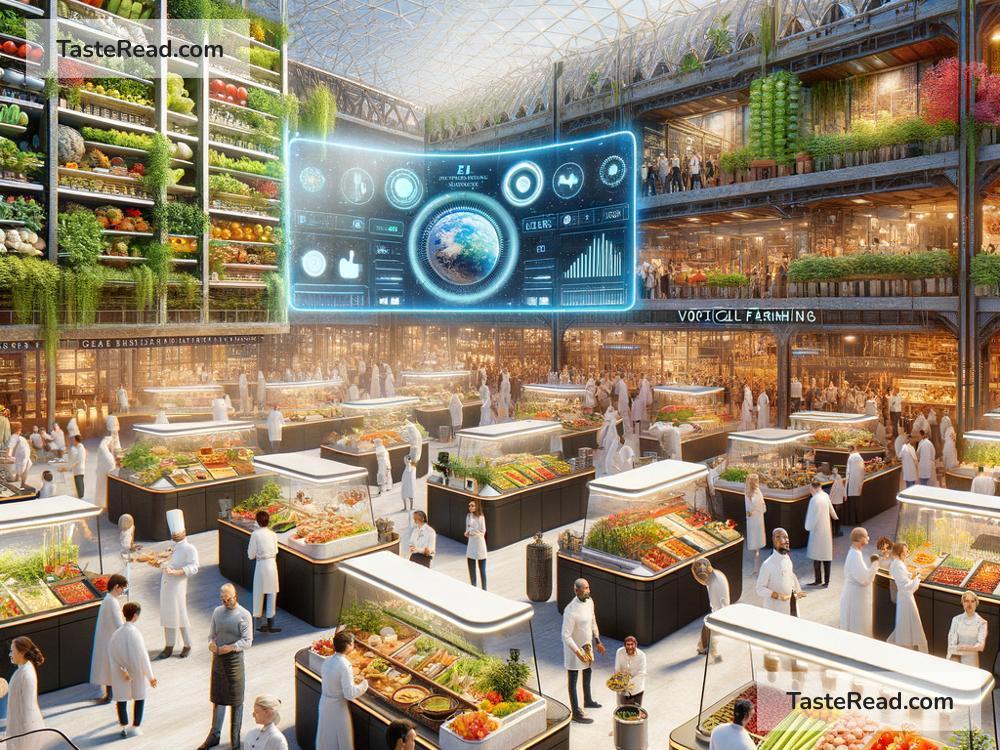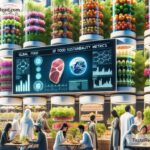The Future of Food and Participatory Global Systems: A Simple Look Ahead
The way we eat and the systems we rely on to produce food are changing quickly. With the world population growing, new technology emerging, and climate change challenging us, the future of food will look very different from today. We’re not just talking about what we eat but how we grow, share, and make decisions about our food. Together, we can build participatory global systems where everyone has a voice in shaping a fairer, more sustainable food future.
Why Our Food System Needs Change
Food is central to life. It connects us to each other, to the environment, and to our cultures. However, there are major problems with the current food system:
-
Hunger and Inequality: Millions still go hungry while others have more than enough. About one-third of all food produced is wasted, even as people don’t have access to basic meals.
-
Climate Challenges: Farming depends on nature, but extreme weather patterns, rising temperatures, and environmental degradation are making food production harder.
-
Health Problems: Processed foods high in sugar and unhealthy fats dominate modern diets, increasing obesity and health concerns worldwide.
-
Unsustainable Practices: Conventional farming often harms the soil, pollutes water, and releases harmful greenhouse gases. This means that we are consuming resources faster than we can replace them.
The future of food is about solving these problems together, and it starts with creating systems where everyone can take part.
The Role of Technology in Food’s Future
Technology is playing a big role in reshaping how we grow and distribute food. Here are a few innovations making waves:
-
Vertical Farming: Instead of growing food on farmland, crops are grown in stacked layers indoors. This saves space, uses less water, and doesn’t rely on weather.
-
Lab-Grown Meat: Scientists are developing meat made from animal cells, which could reduce the need for raising large herds of livestock, lowering environmental impacts.
-
Robotic Farms: Machines are doing the heavy lifting in farming, like picking fruits, planting seeds, and monitoring crops using sensors. These tools can save time, labor, and reduce waste.
-
Climate-Resilient Crops: Researchers are creating plants that can survive droughts, floods, and pests. This is vital as climate change makes farming more unpredictable.
-
Smart Packaging and Food Waste Apps: Technology helps reduce food waste by reminding people about expiration dates and connecting surplus food to people in need.
These advancements are exciting, but technology alone isn’t enough. For food systems to truly improve, people around the world must work together.
What Are Participatory Global Systems?
Participatory global systems are ways of organizing where everyone’s voice matters. It’s about communities coming together—locally and globally—to make decisions about food, farming, and fairness. This approach challenges the idea that only big companies or governments control the food supply. Instead, everyone, including farmers, consumers, scientists, and policymakers, gets a say.
Here’s how participatory systems could shape the future of food:
-
Fair Trade and Farmer Rights: Small-scale farmers often struggle to survive in the current food system. Participatory models could ensure farmers get fair pay and support for sustainable practices.
-
Community-Focused Solutions: Each region has unique food needs. By involving local communities in food planning, we can create systems that respect cultural traditions and local knowledge.
-
Global Cooperation: Countries can join forces to share resources, knowledge, and technology. For example, nations that face drought might learn from successful water-saving techniques elsewhere.
-
Open Access to Knowledge: Participatory systems promote sharing research openly. If a scientist discovers a more sustainable way to grow food, that information should benefit everyone, not just private companies.
-
Citizen Decision-Making: Platforms like food councils or digital voting systems could allow regular people to influence policies that affect what’s grown and how food prices are set.
Why Participation Matters for the Future
Participation leads to food systems that are more inclusive, adaptable, and resilient. When farmers, scientists, policymakers, and consumers collaborate, solutions become stronger because different perspectives are taken into account.
For example, some cities already use participatory methods to manage food waste. Citizens work together to organize programs like community composting, where leftover food is collected and turned into fertile soil. These efforts reduce waste and improve local farming, showing the power of collective action.
Beyond this, participatory systems help us build trust and accountability. People want to know where their food comes from and how it’s grown. Open, transparent systems ensure ethical practices, while feedback from diverse voices leads to smarter decisions.
Imagining a Sustainable Food Future
In the near future, our food might look very different:
- You could have vegetables grown in a high-tech urban greenhouse near your home.
- Meat might come from a lab instead of a farm.
- Food waste might drop significantly as we create better recycling systems.
- Communities might embrace climate-friendly diets, including plant-based proteins and seasonal produce.
All of this can happen if we prioritize participation. The question is: How can each of us play a role? Whether buying ethically-produced food, supporting local farmers, or joining discussions about sustainable policies, change starts with small actions.
Conclusion
The future of food isn’t just about what’s on our plate—it’s about fairness, sustainability, and collaboration. By combining innovative technology with participatory global systems, we have the chance to build a food system where no one goes hungry, the planet thrives, and diverse voices are heard.
Together, we are shaping what’s next. It’s not just about imagining a better world; it’s about creating one, bite by bite and decision by decision. In this journey, everyone matters. What will your role be?


